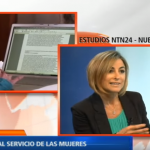
In May, eBay’s acquisition of Spain’s Ticketbis, an online ticket market, for an undisclosed sum that was reported to be $165m, is the latest evidence of the country’s thriving technology sector.
After a deep recession (http://www.forbes.com/places/spain/), which was triggered by the global financial crisis in 2008 and lasted until 2014, Spain is expected to soon become one of the fastest growing economies of the 28 countries in the Eurozone, Costos said at a conference in Spain earlier this month.
The healthy economic outlook may come as a surprise to some who have read articles about Spain’s so-called ‘mileuristas’ – young, well-educated Spaniards who earn less than 1000 euros ($1122) a month – and an unemployment rate of about one in four (http://www.forbes.com/sites/mikepatton/2015/12/28/the-five-highest-unemployment-rates-in-the-world/#4b821e44273d) and nearly in one in two for young people at the height of the recession.
Spain’s economy was indeed hit harder than many other in Europe during the recession, partly because of the collapse in its construction industry. But it’s entrepreneurial spirit has remained strong as a bull.
After all, Spain is home of the Amancio Ortega, founder of Inditex, the owner of Zara and one of world’s biggest fashion retailers and global financial and telecommunication companies including BBVA, Banco Santander, Telefonica and Jazztel and fashion designer brands including Adolfo Dominguez, Custo Barcelona and Desigual.
Spaniards are well known for their entrepreneurial spirit, creativity and style. And according to international experts who gathered last week in Madrid at In3Spain.com (a conference to encourage growth in Spanish and U.S. tech businesses and investment between the two countries) the next big thing will be technology innovation.
As a founder of a number of technology companies and someone who has worked in the creative and PR industries over the last two decades (in the U.S., Latin America and Europe), the conference’s subject has long fascinated me.
Investment in tech is being led by three Spanish venture capital firms (Kibo VenturesK Fund and JME Venture Capital) which have created a fund of $168m to support the expansion of Spanish start-ups.
Spain’s tech companies are doing innovative stuff: re-imagining search engine algorithms, changing how we park (companies like ParkClick) said Adrian Garcia-Aranyos, managing director of Endeavor Spain, an NGO supporting promising entrepreneurs told delegates at the Madrid conference I attended.
¨Silicon Valley is not a place it is a state of mind¨ said Dave McClure, co-founder of 500 startups, a US business that has invested in hundreds of start-ups, told me at the conference.
Getting that state of mind is still tough, though, not matter how much positive thinking you do.
Challenges for Spain’s tech industry and entrepreneurs include how to encourage more young Spaniards to start their own companies, make it easier to start a company – and communicate better with overseas investors and customers.
That theme will probably be discussed further when President Obama visits Spain next month. And with the possibility that Spain’s economy will grow more in 2016 than the U.S. (at least according to some forecasts) both countries have much to gain by boosting transatlantic investment and tech entrepreneurs.


